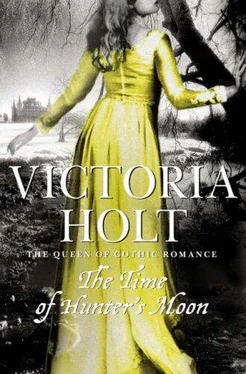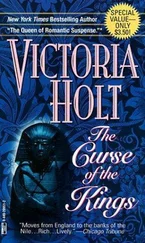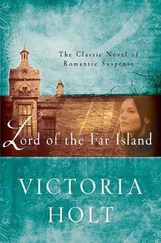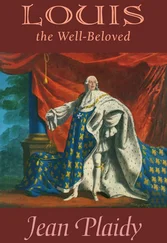Her lips were pressed together. I remembered that it was an old habit of hers. it meant that she knew something which she should not tell.
"I wondered why she didn't write to me," I said. "When I wrote to you I wrote to her also. I had replies from you and Frieda but nothing from Lydia."
"Well, she didn't write to you because ..." "Because what?"
"Oh ... I don't suppose it matters now. She thought you might be a little upset."
"Upset? Why should I be?"
"About her being the one to get married, you see."
"Why should I be upset?"
"Well, because we thought, didn't we, that you were the one."
I looked blank.
"I'm sure it doesn't matter now. It might have been you who had the skiing accident. But I don't suppose you would have. You would have been better at it."
"I don't really follow all this, Monique."
"Cast your mind back. Do you remember Elsa?" "Yes, and it's a funny thing. She's at my school now."
"Elsa ... at your school? Well, that is very strange. What they call a coincidence, of course."
"She said she got tired of Schaffenbrucken and came to England. She had one job which she didn't like and ended up at my school."
"Very odd. But then life is."
"You were telling me about Lydia."
"I was saying, do you remember how Elsa told us that if we went into the forest at the time of Hunter's Moon we might meet our future husbands?"
"Yes. We were a silly lot. We believed it."
"Well, there was something in it. Do you remember the man we called the Stranger?"
"Yes, yes, I do remember."
"We thought he liked you. He seemed to. That was why Lydia didn't want you to know she was married. She thought you'd be upset because you would know it wasn't you he had liked after ail. It was Lydia."
The room was swinging round me. I could not believe I was hearing correctly.
I said: "His name was Edward Compton."
"No, it wasn't that. It was er ... let me think ... Mark somebody. Mark Chessingham ... or ton ... or something."
"It couldn't have been."
"Yes, it was. She was ever so excited. She said it was trie about meeting your future husband. Elsa was right about that. But she said she wasn't telling you because she thought you might be hurt. What's the matter?"
"Nothing. It seemed so odd ..."
"You do mind, Cordelia. You did think that he..."
"I'd almost forgotten him. I'd told myself he didn't exist."
"Oh, he existed all right. He was Lydia's husband. Poor Lydia! He was very good-looking, wasn't he? I only saw him once but he really was ... fascinating. Do have some more coffee."
She went on talking but I was not listening to what she said. I could only think. So he went away and married Lydia. But why had he said his name was that of a man who had been dead for twenty years?
I don't think Monique found my visit as exciting as she had thought it was going to be. John called for me as we had arranged and I was immensely relieved when we said goodbye to Monique and her husband who had returned just before our departure.
As we drove to Kensington, I said: "I have made an alarming discovery."
Then I told him about the man in the forest and how I had seen him on the boat and again at Grantley, how he had disappeared suddenly and that when I had gone to the village in Suffolk where he had told me his home was, I had found that the manor house which he had said was his home was burned out and the name he had given me was on the tombstone of a man who had died twenty years before. And this, according to Monique, was Lydia's husband.
He listened intently. He said it was an incredible story and he wondered what it meant.
"I'll tell you what we'll do," he went on. "We'll go down to that Suffolk village where you saw the tombstone and we'll see what we can find out."
There was a train to Bury St Edmunds at eight thirty next morning and John and I decided to catch it. Charles was taking Teresa on the river from Westminster Stairs to Hampton Court so they were safely disposed of.
It was a relief to be able to talk to John about this strange affair, because I did feel now that it not only concerned me but Lydia.
He asked me to describe the man. It wasn't easy because the description could fit so many. Not that he was ordinary by any means. But fair curling hair, blue eyes, chiselled features ... many had those, and it was not easy to explain that quality of other worldliness.
I told myself there must have been a mistake. Lydia could have imagined that her lover was the romantic stranger she had met in the wood at the time of the Hunter's Moon.
"I can't believe that she would do that. Lydia wasn't a dreamer. She was very practical really."
"That's true. How are we going to start looking?"
"Well, his name is Edward Compton or Mark Chessingham."
"But why should he give two names?"
"I don't know. That's what we have to find out. He mentioned this place Croston in Suffolk and the name of Edward Compton. You went there and saw the name on a tombstone. There must be some connection."
"Yet he was really Mark Chessingham."
"Very odd. The thing is, how are we going to start our enquiries?"
"There were some houses. Perhaps we could ask there."
"We'll see how it goes."
We left the train and took the small branch line to Croston. Memories came back to me. We walked first to the graveyard and I showed John the tombstone with Edward Compton's name on it.
"What next?" I asked.
"I noticed quite a large house on the common. What if we told them we were trying to trace someone. They might be able to help."
We went to the house, which was obviously the most important in the village. A maid admitted us and John asked if he could see the master or mistress of the house. It says a great deal for his business-like manner and air of respectability that we were granted an interview.
Mrs. Carstairs was a comfortable looking middleaged woman who was clearly a little intrigued to find her callers were strangers. She graciously bade us sit down and state our business. She was clearly impressed by John's urbane manner. He gave her his card with the name of his bank on it.
"We are making enquiries about a man who, we think, may have lived here at some time. Unfortunately we are not sure of his name. It could be Mark Chessingham."
He waited. She gave no sign that she had heard that name. "Or Edward Compton," he added.
"Oh, that must be the family who were at the Manor. There is not a Manor now. It was burned to the ground. There's been talk of rebuilding but they never seem to get round to it. But the Comptons lived there. It was a tragedy. I think that several members of the family were burned to death. There aren't any Comptons now."
"Oh dear," said John. "The trail seems to end. Perhaps there is some branch of the family ...?"
"I've never heard of them. I don't think I can help you. You seem to be talking about people who have been dead long ago."
"You've been most helpful. We knew we had a difficult task."
"You have to live here for centuries to be recognized by the people here. We're looked on as foreigners almost, though it's nearly fifteen years since we came. Oh, wait a minute. There's old Mrs. Clint. She's a know-all. She's lived here all her life and must be about ninety. She'd remember the fire. If you want to know anything about the people who lived here she'd be the one to tell you."
"It's most kind of you to be so helpful. Where could we find her?"
"I'll take you to the door and show you. Her cottage is just across the Green. She's bound to be in. She can't get about much now. Her daughter goes in and does what is necessary."
"Well, thank you very much."
"I'm only sorry I can't be of more help."
She stood at her door and pointed out the cottage across the Green.
Читать дальше










